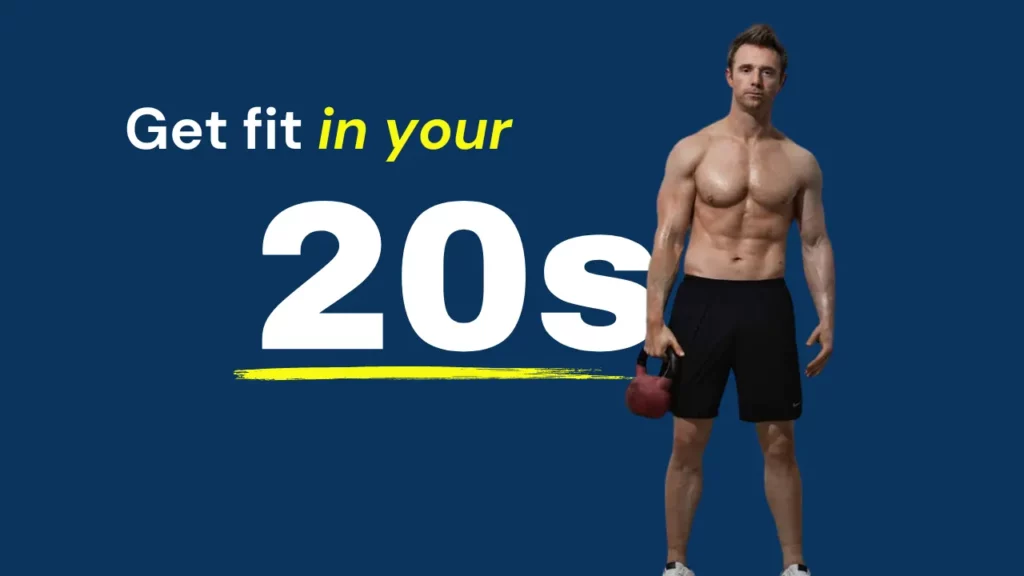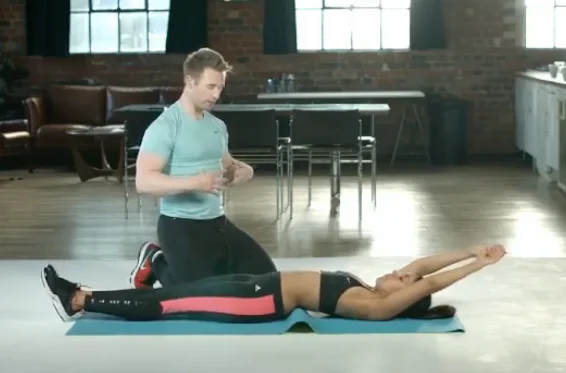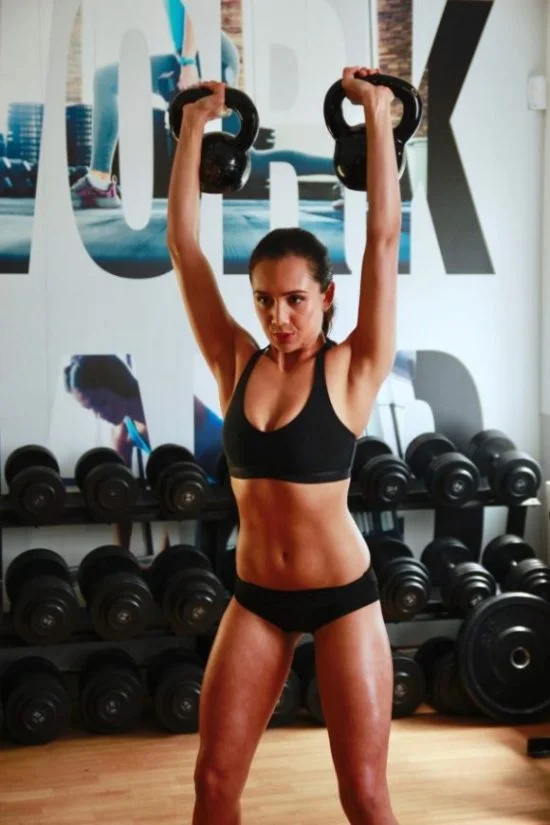
When navigated well your twenties can be a very fruitful period of your life, especially when it comes to exercise. It’s a period of life where you’re able to establish the first principles of exercise and healthy living. And the fundamentals will serve you for a lifetime. The major opportunity at this age is that your body is primed for action and will deliver results and recover well even under less-than-optimal conditions. The major banana skin at this time in your life is that these are your formative years and you’ll be faced with a lot of social pressure and distractions. Let’s explore how to get the most out of this decade.
What to expect from your body in your twenties
In your twenties, your body is going to be strong, resilient, full of energy and able to respond to and recover from exercise very well. This is because your body is hormonally primed to be able to react to stimuli, particularly when it comes to gaining muscle. This doesn’t mean however that you are impervious to setbacks, which we’ll discuss in a moment.
What to expect from life in your twenties
Given that I’m in my late thirties at the time of writing this article, I can speak retrospectively and empathetically to what you are likely to experience through your twenties. It’s probably worth noting that you’ll likely be so different and value such different things throughout this decade that I could be writing to three different versions of you, i.e. you’ll be a totally different person at 20, 25 and 29. I certainly was, but that doesn’t mean that certain themes won’t run through the whole period.
Whilst your body is incredibly resilient in your 20s, it’s also the time in your adult life when you will be most vulnerable emotionally and psychologically to short-term gratification, the woes of comparison and defining yourself by the good opinion of other people. This is going to bring with it immense pressure to ‘fit in’, look a certain way, or take risks to speed up your results.
For me personally, to be honest, achieving my initial gains in lean muscle mass through weight lifting from my late teens to early twenties was as much out of desire as it was a strategy. I was growing up in a fairly ‘eventful’ part of North West London, so the more muscular I got, the less vulnerable I felt out and about on my own. Rightly or wrongly, whilst I also loved to train, I can’t deny that the results also served a purpose. I say that to say that, throughout our twenties, we have to balance our healthy intrinsic desires to maximise our potential and become who we are seeking to be whilst managing external sources of pressure.

Advantages to starting early
Let’s take a look at some of the major reasons for taking your health and fitness regime seriously in your twenties:
Take advantage of logistics
In your twenties, you are most likely to have more free time, less stress, greater access to adequate sleep and a generally more active lifestyle than you may have in later life, even throughout your thirties. My advice would be to make the most of that responsibility-free time to lean into your training and make a lot of progress that will benefit you both now and in later life.
Maximise your genetic potential
During your twenties, your hormones are primed for anabolic progress. So my advice would be to work to gain the level of muscle that you want in your twenties. It makes sense to do this when the odds are stacked in your favour; it’ll still be possible later, but it’ll just never be easier than it is now. For many people, closing the gap on their natural muscular potential over the course of their twenties is both a worthwhile pursuit and a fantastic way to build self-esteem. Actually, I think exercise is a wonderful vehicle for personal development
Avoids common life pitfalls
We all hear stories of young athletes who kept away from the more negative temptations of their local environment by engaging in their sport. While their friends were out joining gangs and getting into trouble, they were at practice, and it kept them on the straight and narrow. Whilst incorporating fitness into our lifestyle is unlikely to be that romantic for the majority of us, keeping a diligent and consistent workout practice inherently demands a good deal of rest and recovery. Or you just won’t see the same results. This means you’re simply less inclined to indulge in some of the more extreme partying you might otherwise have been drawn to out of need for rest, just ask any serious athlete or bodybuilder.
Transferable life skills
Exercise isn’t all about aesthetics and physical performance. A concerted and consistent exercise habit throughout your 20s is going to give you transferable life skills that will serve you in other areas of your life. For example, delayed gratification, goal setting, perseverance, troubleshooting, dedication, focus and planning which means fitness training can really set you up for future success.
Engrain habits
As we’ve discussed we might do well to consider our twenties a formative period. The sooner you can establish consistent exercise and lifestyle habits that keep you at a good level of body fat and in good all-around physical fitness, the sooner these habits will just become a part of who you are. Establish these early and that baseline habit set will serve as an early warning system for potential health setbacks for the rest of your life. The higher you can make your standards in your twenties, the more accountable you’ll be to those standards through the decades.
May help avoid injuries in the future
On a more practical level, studies have suggested that being exposed to structured resistance training early on will lower the risk of injury later, likely because of gaining early strength and because of the cultivation of all-around bodily control and coordination.
Below is Alyna, a former online personal training client of mine who chose to seek expert guidance in her early twenties, allowing her to pursue her goals in a very healthy, balanced way and has now gone on to become a personal trainer in her own right and has helped hundreds of people with their health & fitness goals:

What to avoid in your 20’s
Learn the basics (and don’t rush)
Just because your body is primed for fast muscle growth in your twenties, it doesn’t mean it would be in your interest to skip important aspects of the foundations of health & fitness training. Make sure that you take time to learn proper exercise technique and muscle recruitment. This will massively help you avoid injuries which could lead to longer-term setbacks.
Ensure that you learn to balance rest and work both inside and outside of your exercise efforts. Again, I get that you’re in your twenties, and you have a huge energy supply right now. But it’s still possible to burn out. So seek advice about workout programming to ensure that you don’t burn the candle too bright.
Avoid comparison
This one is huge. If you’re in your twenties now, you are experiencing your twenties in the social media age. Personally, I wasn’t really exposed to such comparison, at least not in my early twenties, so always keep in the back of your mind that you may be comparing your everyday worst to someone else’s highly curated best, and that’s a game you cannot win.
Social media can be a great source of inspiration but also consider that some of the people you are comparing yourself to may be manipulating their public image, getting in shape for a period of time and dripping content throughout the year giving the impression of amazing year-round conditioning or more plainly be taking risks with their health that you aren’t privy to or would be willing or advised to do yourself.
Ultimately, the only comparison that is healthy to make is between who you are today to who you were when you started. Any other comparison is not going to be particularly good for your self-esteem.
Don’t get restrictive
Try to keep your approach to nutrition relatively instinctive in your twenties, listen to your body, and don’t get too caught up in diets, restrictive calorie counting and fads. Whilst it can be very good to know exactly what calories and macros support your fitness goal, don’t let that supersede what your body is telling you, and certainly don’t go through long periods of restriction.
Don’t take irreversible risks
You are likely to be slightly more prone to risk-taking in your twenties than in later life. So it’s prudent as a general life rule never to ‘bet the house’ on any one decision. Put another way never take an irreversible risk in any area of life, that mental model will serve you well over time. I don’t mean don’t take risks, start a business, ask someone out, move to a new city, or change careers that’s all fantastic, and importantly all reversible.
What I’m getting at here, is an extension on the above point, if you are a bit sleep-deprived, hungover and still train when you probably shouldn’t, will you get away with it with any consequences? Almost certainly, especially at your age. But don’t extend that same casualty when it comes to imprudent supplementation and other more serious temptations to take extreme steps toward your goals, because not all health risks are reversible even in your twenties.
Practical application
I hope this article has served as a CliffsNotes style guide to health & fitness in your 20s. So how do these principles play out in an actual routine? Well, there won’t be any one routine that works for too long without producing diminishing returns, it certainly won’t last a decade.
So it’s best to work with first principles. Assuming you have learnt proper technique, cultivated a healthy relationship with food and understand the balance of work and rest here is what I recommend:
- Lean into frequent resistance training.
- Rotate protocols each 6-8 weeks or when you start to see a drop in performance.
- Don’t be afraid to use volume and intensive workouts, your body can recover from them easily at this age.
- Lean into short bursts of HIIT work or hybrid /functional training. This combination should allow you to stay pretty lean whilst pursuing the level of muscle mass you seek.
- Mobility will be less of a priority at this age for most, but make it a routine to use dynamic movement to warm up for workouts and stretch out afterwards, don’t wait for this necessity to be forced upon you in your thirties. Try this quick 10-minute follow-along session.
Final thought
One of the big life lessons I’ve observed is that a lot of ground can be covered by not making easy mistakes that someone more experienced, like a mentor, personal trainer or coach could have helped you avoid. This is what’s known as an information advantage. So don’t hesitate to seek expert guidance to make sure you make the most of this period where your body is basically poised for great results. If you would like to discuss the opportunity for me to help you with your health & fitness goals with my comprehensive custom workout program, let’s schedule a consultation call here.